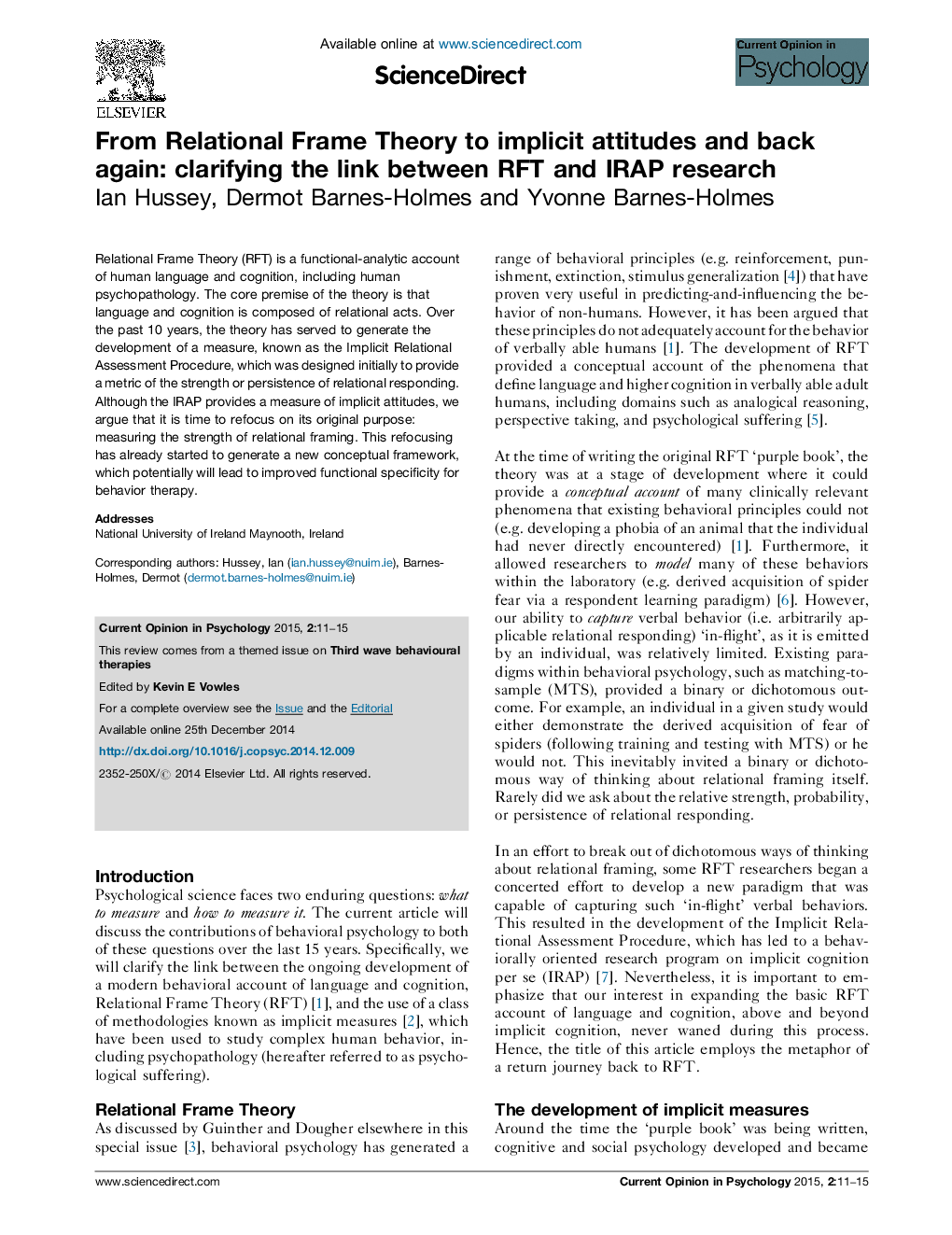| کد مقاله | کد نشریه | سال انتشار | مقاله انگلیسی | نسخه تمام متن |
|---|---|---|---|---|
| 879512 | 1471327 | 2015 | 5 صفحه PDF | دانلود رایگان |

• Implicit attitudes sometimes predict clinical behaviors better than self-reports.
• Relational Frame Theory generated the Implicit Relational Assessment Procedure.
• The IRAP is recognized as a unique and successful measure of implicit attitudes.
• The IRAP was originally designed to target the strength of relational responding.
• Refocusing on the IRAP's original purpose could be important for behavior therapy.
Relational Frame Theory (RFT) is a functional-analytic account of human language and cognition, including human psychopathology. The core premise of the theory is that language and cognition is composed of relational acts. Over the past 10 years, the theory has served to generate the development of a measure, known as the Implicit Relational Assessment Procedure, which was designed initially to provide a metric of the strength or persistence of relational responding. Although the IRAP provides a measure of implicit attitudes, we argue that it is time to refocus on its original purpose: measuring the strength of relational framing. This refocusing has already started to generate a new conceptual framework, which potentially will lead to improved functional specificity for behavior therapy.
Journal: Current Opinion in Psychology - Volume 2, April 2015, Pages 11–15